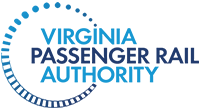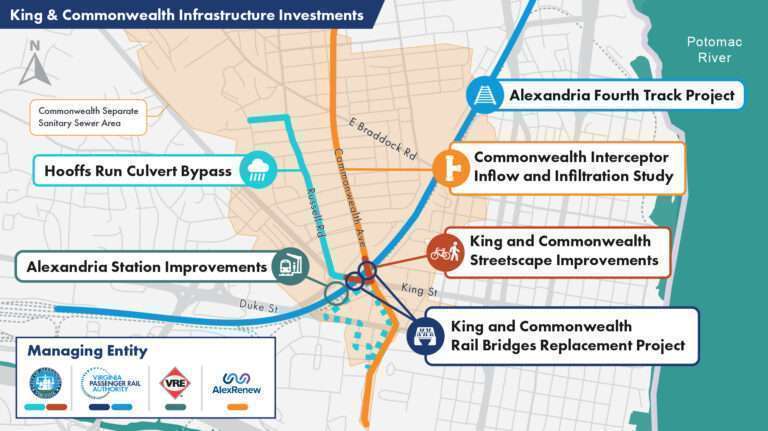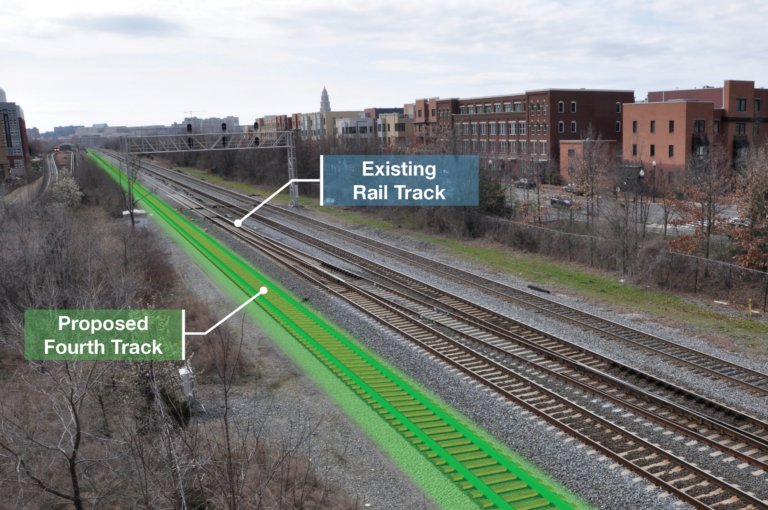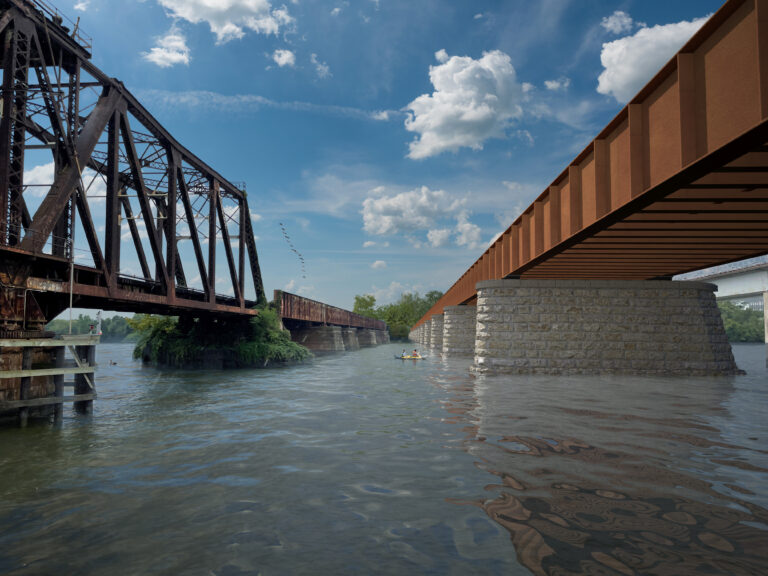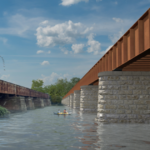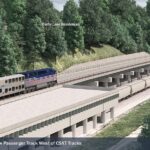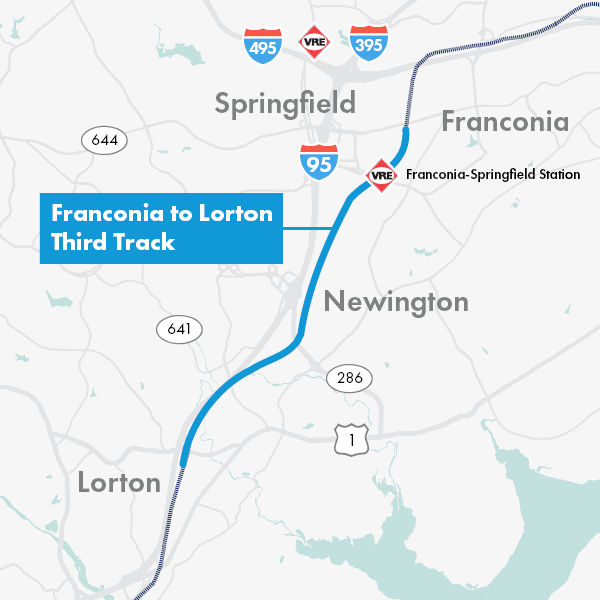
The Franconia to Lorton Third Track Project will increase rail capacity and alleviate congestion for passenger and freight services on one of the most heavily traveled sections of rail between Washington, DC and Richmond, VA. The project will add a third, six-mile mainline track between the Franconia-Springfield VRE Station and the Lorton VRE Station, creating a continuous third track corridor between Alexandria and Lorton. To accommodate the new third track, the railroad bridge over Newington Road will be replaced with a longer and wider bridge, and the railroad bridge over Lorton Road will be widened.
The Franconia to Lorton Third Track Project will be carefully coordinated with the Franconia-Springfield Bypass Project.
The image to the right illustrates the planned third track at the Franconia-Springfield VRE Station, and the new pedestrian tunnel that will connect the VRE Station platform to the Barry Road cul-de-sac. This pedestrian tunnel will replace the current pedestrian access path to the station.
Use the slider to view the proposed third track.
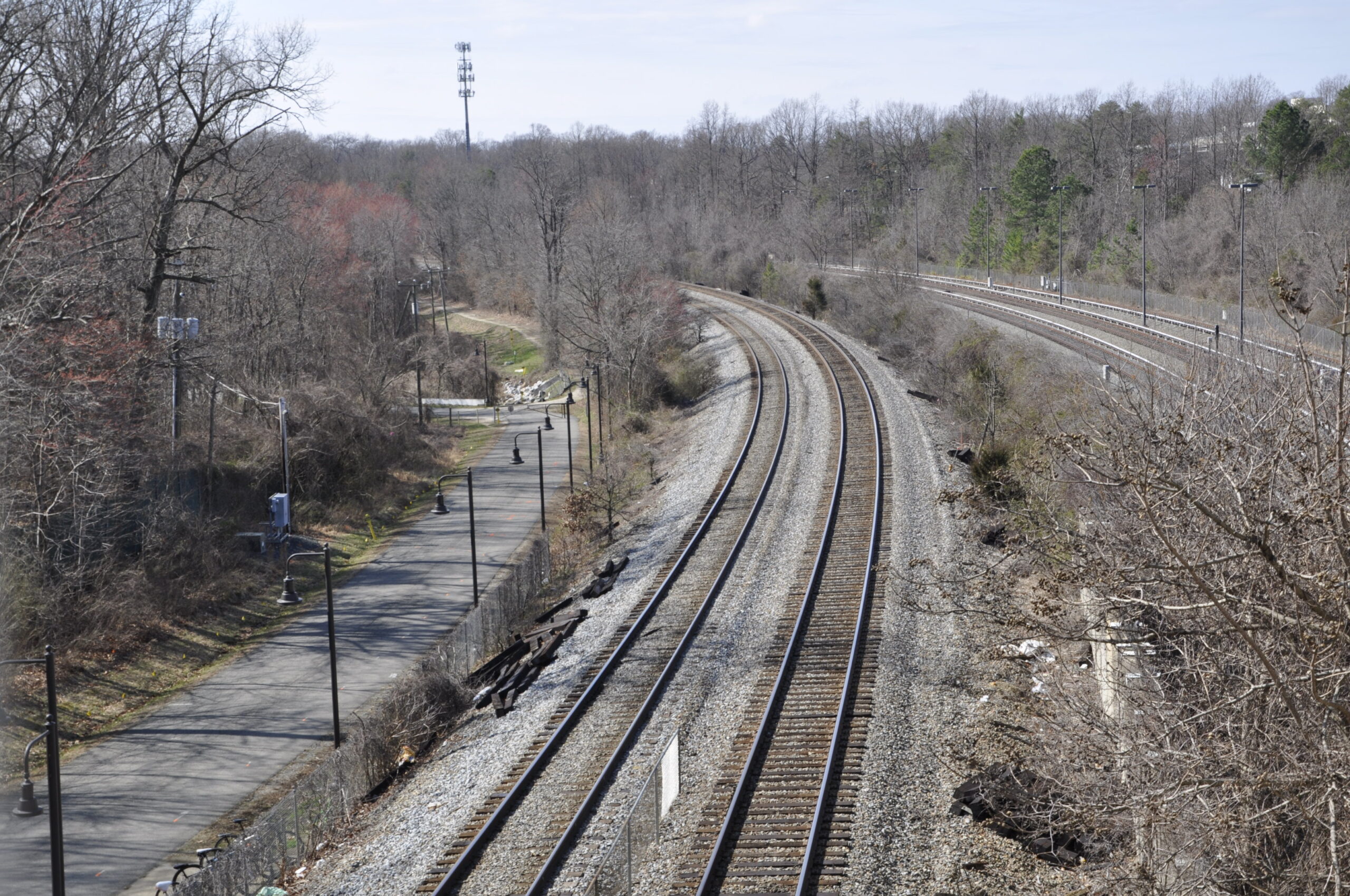
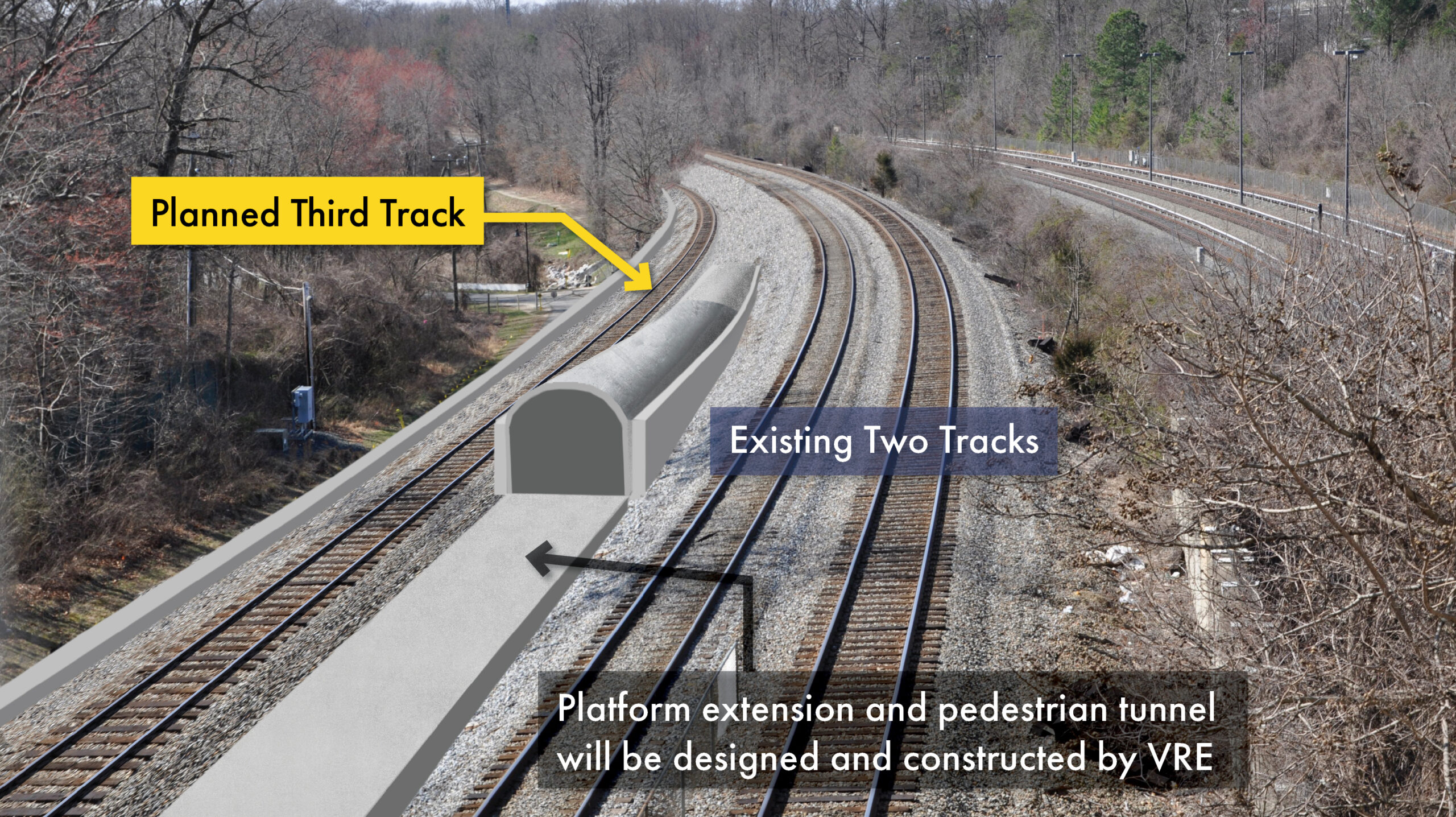
Project Status: In Construction
The Franconia to Lorton Third Track Project will increase rail capacity and alleviate congestion for passenger and freight services by adding a third mainline track along one of the most heavily traveled sections of rail between Washington, DC and Richmond, VA. The additional 6 miles of mainline track from Franconia to Lorton will create a continuous third track corridor between Alexandria and Lorton.
Total Budget: $290.9 M
Project Details
What's New
Get news and updates, find out about upcoming events and public meetings, and download materials.
Public Involvement and Outreach
Documents and Reports
- Neighborhood Meeting for Franconia Projects (July 2023)
- Franconia Area FAQs (July 2023)
- Project Fact Sheet (February 2025)
- Display Boards (all) (June 2023 In-Person Outreach)
- Virtual Public Meeting Slides (June 12, 2023)
- Virtual Public Meeting Video (June 12, 2023)
Fact Sheets and Project Materials
- Project Fact Sheet (December 2025)
- Display Boards (all) (June 2023 In-Person Outreach)
FAQs
WHAT IS THE FRANCONIA TO LORTON THIRD TRACK PROJECT?
The Franconia to Lorton Third Track Project will increase rail capacity for passenger and freight services between Franconia, VA and Lorton, VA by adding a third mainline track along one of the most heavily traveled parts of the rail corridor between Washington, DC and Richmond, VA. This will allow for the separation of passenger and freight trains within the corridor. Additionally, to support future service expansion, some infrastructure will be designed and built to accommodate a future fourth mainline track. These improvements will reduce congestion, increase capacity, and improve the reliability of passenger and freight service in the corridor.
HOW WILL THE FRANCONIA TO LORTON THIRD TRACK PROJECT BENEFIT ME AND MY COMMUNITY?
This project will:
- Increase capacity to accommodate more passenger rail service and freight rail activity
- Improve reliability of passenger and freight rail services
- Accommodate VDOT’s and Fairfax County’s plan to reconfigure Newington Road with four vehicular lanes and pedestrian facilities (currently 1 vehicle travel lane without pedestrian facilities)
- Improve connectivity between existing multimodal facilities (passenger rail, Metro rail, bus, bicycle, automobile), including improved connectivity to the WMATA bus facility on Cinder Bed Road
- Provide a frequent and dependable alternative to travel on I-95
The project will construct approximately 0.7 miles of one additional main line track west of the existing tracks (from Long Bridge to Crystal City) and approximately 5.3 miles of one additional main line track east of the existing tracks (from Crystal City to Alexandria), generally staying within the existing railroad right-of-way.
WHAT WORK IS PROPOSED FOR THE EXISTING RAILROAD BRIDGES WITHIN THE PROJECT LIMITS?
There are two existing bridges over roadways and two existing bridges over waterways within the Project limits. The construction of these bridges is expected to be phased to allow for continuous service throughout the duration of the project. All bridge work will result in widths that accommodate four railroad tracks. The railroad bridge locations within the project limits include:
- Newington Road: The existing two-track railroad bridge will be replaced, and a new double-track railroad bridge will be built adjacent to it.
- Accotink Creek: A new two-track railroad bridge will be constructed adjacent to the existing railroad bridge. No work is proposed for the existing railroad bridge over Accotink Creek.
- Pohick Creek: The existing two-track railroad bridge will be replaced, and a new two-track railroad bridge will be built adjacent to it.
- Lorton Road: A new two-track railroad bridge will be constructed adjacent to the existing railroad bridge. No work is proposed for the existing railroad bridge over Lorton Road.
WHAT IS BEING DONE TO ACCOMMODATE A FUTURE FOURTH TRACK?
The Alexandria Fourth Track project will improve the efficiency and reliability of rail operations to support the planned growth of freight, passenger, and commuter rail traffic in Northern Virginia and the southeastern United States. Improvements to the rail infrastructure in Northern Virginia will increase state-supported Amtrak service between Washington, DC, and Richmond, resulting in near-hourly service along this corridor.
Alexandria Fourth Track will increase rail capacity by addressing the existing bottleneck. Currently, on the southern end of the project area, west of Alexandria station, three tracks from the VRE Fredericksburg Line and two tracks from the VRE Manassas Line converge into three tracks, causing a bottleneck and delays for passenger and freight trains traveling north. The existing tracks will be shifted, and a new fourth track will be added, all generally within the existing right-of-way. The results of this project will be added capacity and efficiency for passenger and freight trains traveling north into Arlington and Washington, DC.
The design also accommodates station and platform improvements planned by VRE for the Alexandria and Crystal City passenger stations as well as a new platform planned by Amtrak in Crystal City.
As part of Transforming Rail in Virginia, Alexandria Fourth Track will improve passenger rail service’s connectivity (capacity, efficiency, and reliability) within Virginia, into DC, and, ultimately, all along the Eastern Seaboard.
HOW IS THE FRANCONIA TO LORTON THIRD TRACK PROJECT BEING FUNDED?
The Franconia to Lorton Third Track project is being funded through the collaboration of federal, state, and local contributions. The Federal Railroad Administration, Amtrak, VPRA, Virginia Department of Transportation (VDOT), and Fairfax County have each committed funding for various phases of the project.
WHEN IS CONSTRUCTION EXPECTED TO OCCUR, AND HOW LONG WILL IT TAKE TO COMPLETE THE PROJECTS?
More information on the construction timeline coming soon.
WILL THERE BE NIGHT OR WEEKEND WORK?
Weekly work schedules will be determined as the projects advance closer to the start of construction. VPRA will have more information in Fall 2025.
HOW WILL THESE PROJECTS IMPACT TRAFFIC, PROPERTY ACCESS, AND EMERGENCY SERVICES DURING CONSTRUCTION?
Residents and emergency personnel will be notified in advance of any roadway closures or detours. Passenger rail service is expected to be maintained throughout construction, and any service adjustments will be communicated by passenger rail service providers (i.e., Amtrak and VRE). Community members and emergency personnel will be able to access amenities and places of work via dedicated detour routes if necessary.
Movement of construction vehicles and transport of construction materials will occur on local roadways and is not anticipated to cause any type of major disruption.
VPRA has developed a Construction Disruptions Map to help inform communities about travel disruptions and detours.
WILL THESE PROJECTS HAVE AN IMPACT ON THE ENVIRONMENT?
VPRA is working with the U.S. Army Corp of Engineers, U.S. Fish and Wildlife Service, Virginia Department of Environmental Quality, and other regulatory agencies to assess environmental impacts. There are currently no known significant adverse environmental impacts in the project areas. VPRA will obtain the appropriate permits before performing any work and will minimize disturbance to the surrounding areas where feasible. All land use temporarily affected by construction activities will be returned to its original use after construction is complete.
WHAT MITIGATION EFFORTS ARE IN PLACE TO REDUCE ENVIRONMENTAL IMPACTS?
VPRA will make every effort to avoid and minimize the environmental impacts of the rail improvement projects. Where impacts cannot be avoided, VPRA will apply appropriate mitigation measures as required by local, state, and federal regulatory agencies. VPRA will take steps to mitigate environmental impacts, including, but not limited to, the following:
- Wetland and stream impacts
- Floodplain impacts
- Noise and vibration impacts
- Air quality impacts
Explore the project
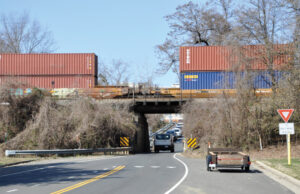
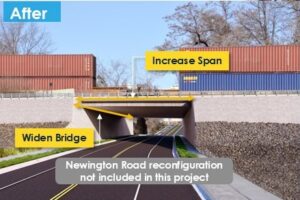
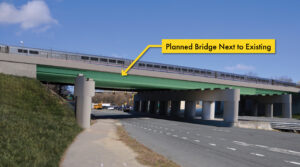
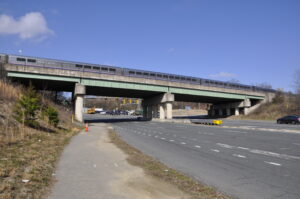
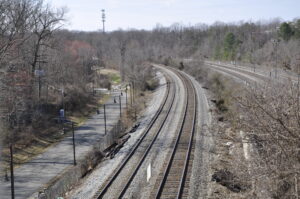
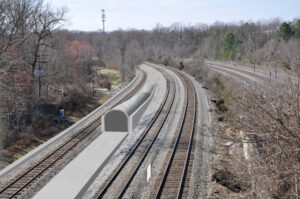
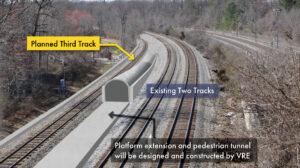
Nearby Projects
News & Alerts
Sign Up for Email Updates
Stay on track with the latest VPRA and Transforming Rail news and updates.
